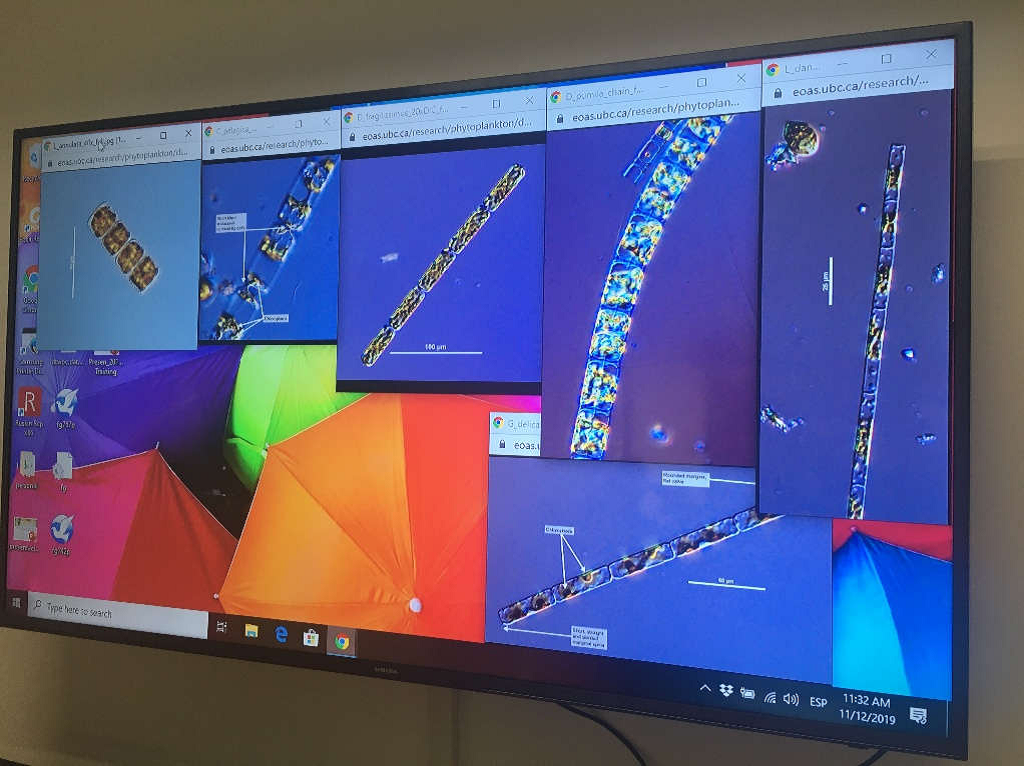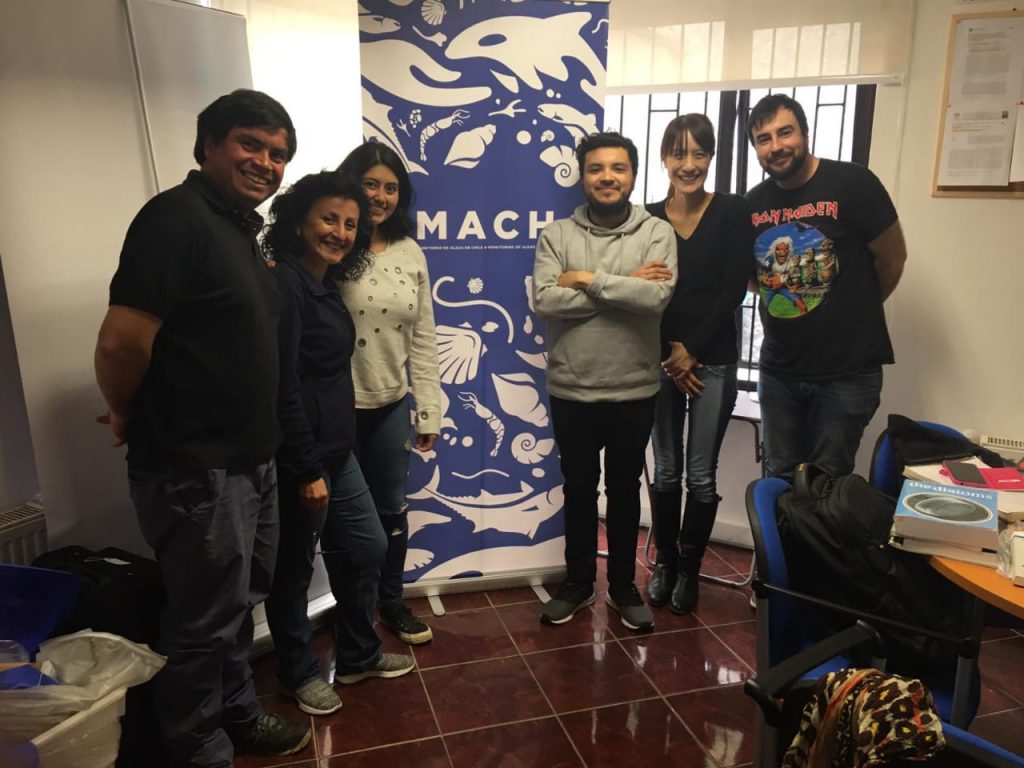During November 11th to 13th, 2019, four laboratory assistants of the MACH project participated in a training seminar organized by IFOP-CREAN (Instituto de Fomento Pesquero- El Centro de Estudios de Algas Nocivas) in Puerto Montt city. The main goal of this training was to standardize and improve the knowledge of the assistants on microscopic microalgae identification required for their sampling. Also, this meeting was very important for these assistants to meet together for the first time and to discuss various problems they have encountered during sampling.
To initiate the activities, Dr. Leonardo Guzman and Dr. Oscar Espinoza presented the role of IFOP and their work on HABs (Harmful Algae Blooms). Also, Dr. Kyoko Yarimizu presented the relevance of the ongoing project to the Chilean and Japanese society.
Prior to the sample analysis, Ms. Julia Caceres from IFOP briefly explained the attendees the seminar schedule, studying diatoms for the first half of the seminar and dinoflagellates for the other half. After Ms. Caceres’s lecture, the assistants observed various microalgae species, that IFOP prepared, under microscope. With the training, Ms. Caceres successfully taught and improved the knowledge of the assistants on the physiology of diatoms as well as detection of different genera using microscope. They were able to identify Chaetoceros, Stephanopyxis, Guinardia, Rhizosolenia, Coscinodiscus, Eucampia, Pseudo-nitzschia, and others at specie level (species detection skill is required for some phytoplankton due to their morphological and functional differences at the taxonomic level).

This training seminar was very useful and productive as all four laboratory assistants and exchange their opinions in addition to have improved their laboratory skills required by the SATREPS MACH project.
The laboratory assistants for MACH Project
- Henry Cameron, University of Antofagasta
- Ignacio Rilling, University of La Frontera
- Karen Vergara , University of Los Lagos
- Jonnathan Vilugrón, Instituto de Fomento Pesquero
